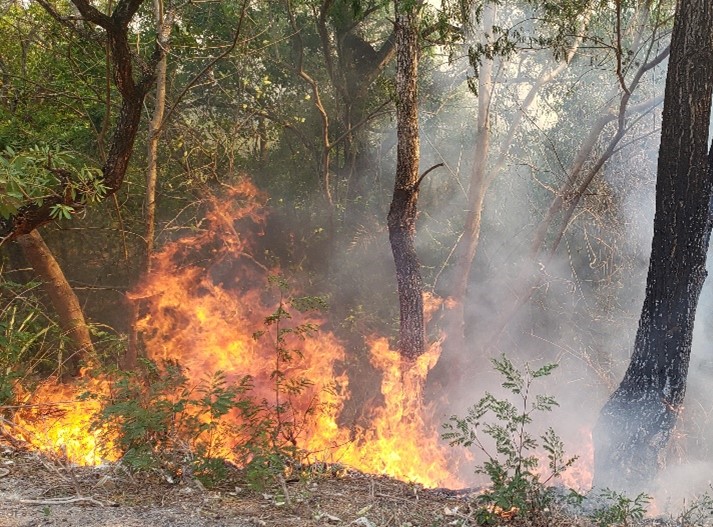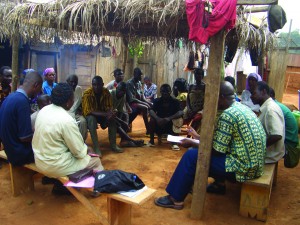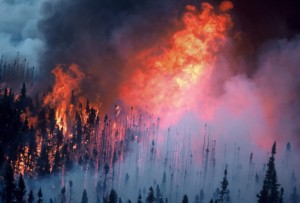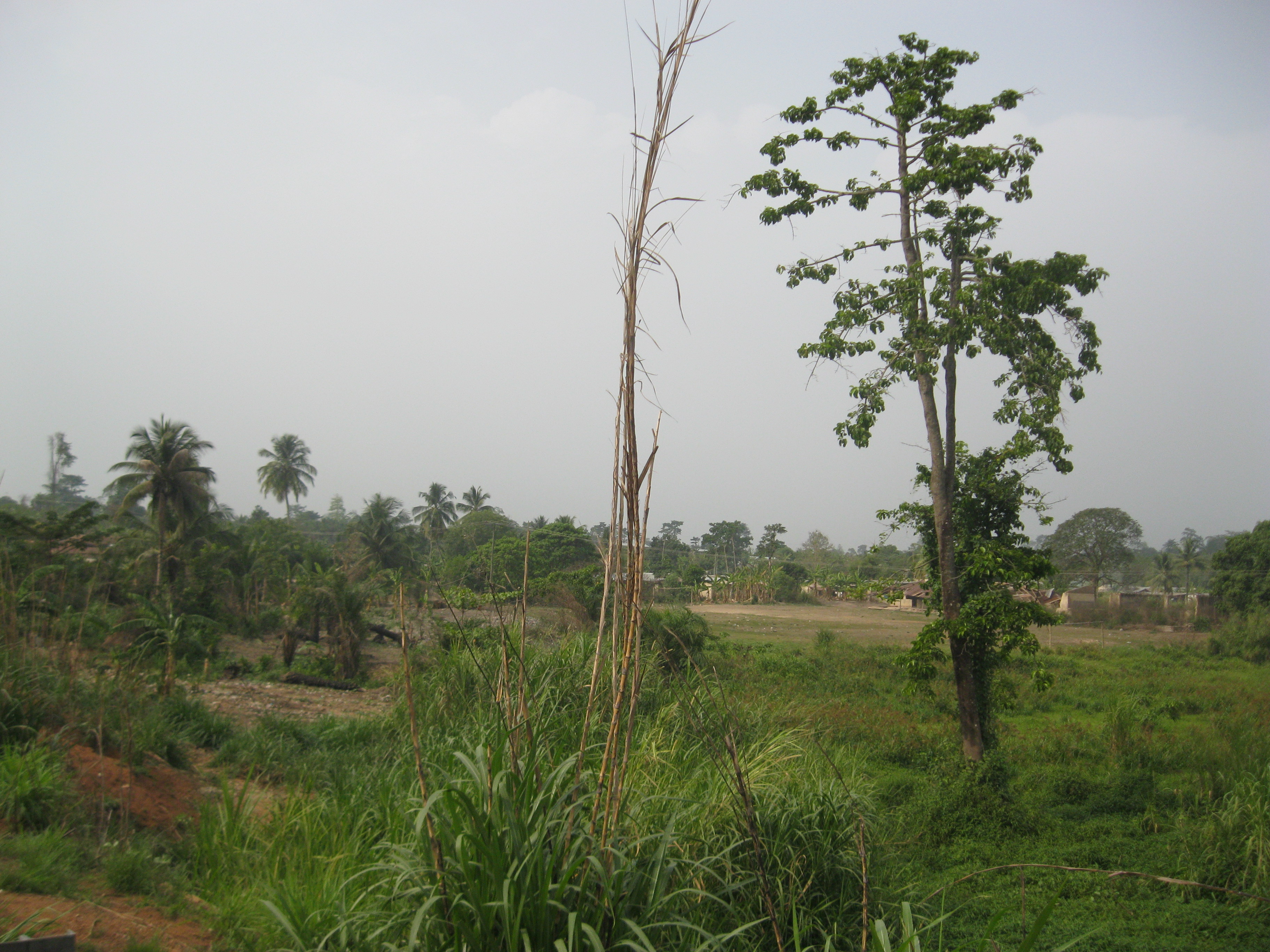Forests and Fire: Intersectionality of Forests and People
Forests and Fire: Intersectionality of Forests and People

Throughout the Americas wildfires are changing. Forests are experiencing longer fire seasons, fires occurring outside of historic fire regions, fires burning more land on average each year, and more extreme fire behavior; some of which is attributed to a changing climate. Additionally, we are seeing an increased frequency of wildfires in populated area, impacting more homes and communities.
Burn notice: Fire’s reality in the 21st century
Burn notice: Fire’s reality in the 21st century
NOTE: This text is reblogged without any changes from an article written by Hugh Biggar (Landscape News) about IUFRO Occasional Paper 32 – Global Fire Challenges in a Warming World, at https://news.globallandscapesforum.org/34468/burn-notice-fires-reality-in-the-21st-century/.
_________________________
As a result of the extreme weather driven by climate change, fires are an increasingly common fact of life globally – one that calls for new approaches to living with fire, according to a report developed by a multinational team of experts.
“Data shows a trend of increasing frequency and intensity of uncontrolled fires adversely affecting biodiversity, ecological systems, human well-being and livelihood, and national economies,” says the report from the International Union of Forest Research Organizations (IUFRO) and the World Bank’s Program on Forests (PROFOR). Read more…
Spotlight #32 – Sharing Knowledge to Rebuild Tropical Forests and Landscapes
Sharing Knowledge to Rebuild Tropical Forests and Landscapes
Tropical forests contain a huge amount of biological diversity, play a key role in human health, offer a vast array of ecosystem services and have become central to global debates on climate change.
 But extensive deforestation and degradation are causing a significant decline in the biological diversity and the ecosystem goods and services provided by them. And, in many African countries there is a notable connection between degradation and the inability of decision makers – and the larger society – to access existing scientific knowledge and innovations that could help reverse the impacts of forest degradation. Read more…
But extensive deforestation and degradation are causing a significant decline in the biological diversity and the ecosystem goods and services provided by them. And, in many African countries there is a notable connection between degradation and the inability of decision makers – and the larger society – to access existing scientific knowledge and innovations that could help reverse the impacts of forest degradation. Read more…
IUFRO Spotlight #14 – Wildfire projected to spread like, well, wildfire
Wildfire projected to spread like, well, wildfire

Boreal wildfire, Saskatchewan, Canada (Photo by Bill de Groot, Natural Resources Canada – Canadian Forest Service)
A recently published study: Global Wildland Fire Season Severity in the 21st Century, indicates that in coming decades, conventional approaches to wildfire management may no longer be effective.
It appears in a Forest Ecology and Management journal special issue entitled The Mega-fire reality, published by Elsevier. The study is a first global review that shows the extent of the increasing length of the fire season and the increasing fire weather severity.
IUFRO Spotlight #8 – Combatting Climate Change Comprehensively
Combatting Climate Change Comprehensively
By Ben Chikamai (Kenya Forestry Research Institute)
IUFRO Board Member, Kenya

Degraded forest landscape in the Offinso District, Ghana. The original high forest cover has been modified through over-exploitation of wood resources, agriculture activities, and establishment of human settlements. (Photo by Ernest Foli, FORNESSA)
African forest policy makers and governments could benefit by using a recent study as a template to help bring climate change adaptation into the mainstream of national development strategies.
The study, conducted in two forest-dependent areas in Africa, emphasizes cross-sectoral planning – recognizing and incorporating interacting priorities, such as agriculture, health, forestry, land-use planning, water resources, energy, education, etc. – as a key element in implementing any effective climate change adaptation strategy.
Forests can play an important role in achieving climate change adaptation goals in Africa. But sustainable forest management decisions alone can’t accomplish that. Policy decisions – for forests as well as other resource areas – must complement one another. At present, impacts from some of those other sectors may actually be threatening the forests.
There are a number of pressures on Africa’s forests – agricultural expansion and forest over-use among them. Reducing non-climatic pressures, in a logical, prioritized manner, can help reduce the vulnerability of forest ecosystems. That’s crucial because many people in Africa are highly dependent on forest goods and services. Those people are, and will continue to be, particularly vulnerable to the impacts of climate change. Improving the capability of forest dependent communities to adapt to a changing climate will reduce that vulnerability.
The study: Enhancing Adaptation of Forests and People in Africa – Development of Pilot Cases for Selected Forest Ecosystems in Ghana and Malawi, examined forest issues related to climate change in selected areas of those countries. The authors, E.G. Foli and S. Makungwa, worked in those specific areas because they represent typical examples of the ecological and socio-economic situation prevalent in Sub-Saharan Africa, so the findings could also be applied to countries in West, Central, Southern, and parts of East, Africa.
Among other findings, the study confirmed a general trend of increasing mean annual temperatures and a decline in mean annual rainfall. In the Ghana pilot area this has resulted in forest loss due to wildfire; a decline in the availability of non-timber forest products; reductions in agricultural crop yields; and declining potable water supplies and the associated risk of water-borne diseases. In the Lake Chilwa area of Malawi, in addition to declining potable water supply and its associated disease risks, there has also been poor productivity on tree farms; loss of indigenous trees in communal areas, riverbanks and surrounding forest reserves; a decline in agricultural productivity; and declining fish catch from the lake.
While the study noted how changing climatic conditions can adversely affect livelihoods, health and food security in those communities, it also noted examples of locally initiated adaptation strategies developed to mitigate the impacts of the changing climate. By compiling existing information, including the needs of stakeholders in the various inter-related resource areas, consulting with local communities and assessing and evaluating each project site, enhanced and concrete adaptation measures for the pilot areas were developed.
Then, a priority setting exercise was carried out to identify appropriate and relevant adaptation strategies and activities that would best serve the communities. Similar techniques could be used across a much wider area, the authors say, but that will require political will, financial commitment, and an integrated multi-sectoral – even trans-national – approach. It’s a challenge, they agree, but one that must be faced.
The full study can be found at: http://www.fornis.net/content/enhancing-adaptation-forests-and-people-africa-development-pilot-cases-selected-forest-ecosy
